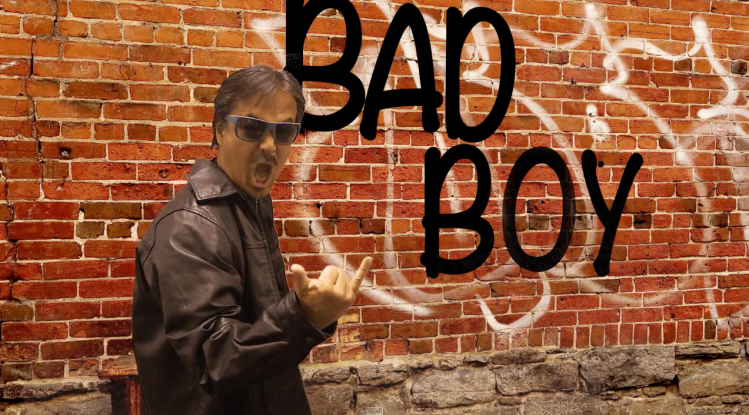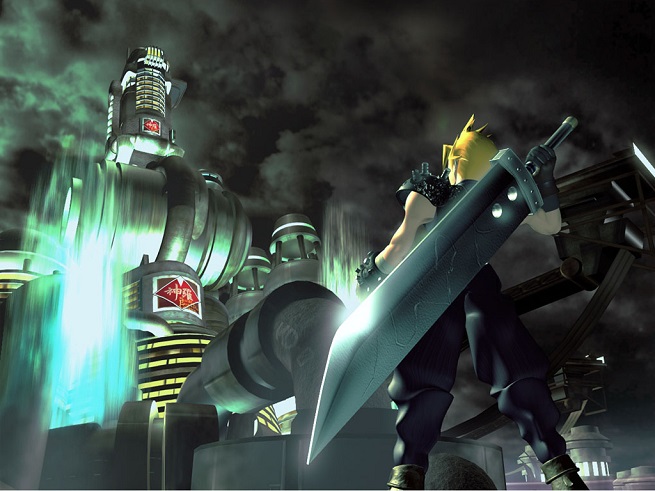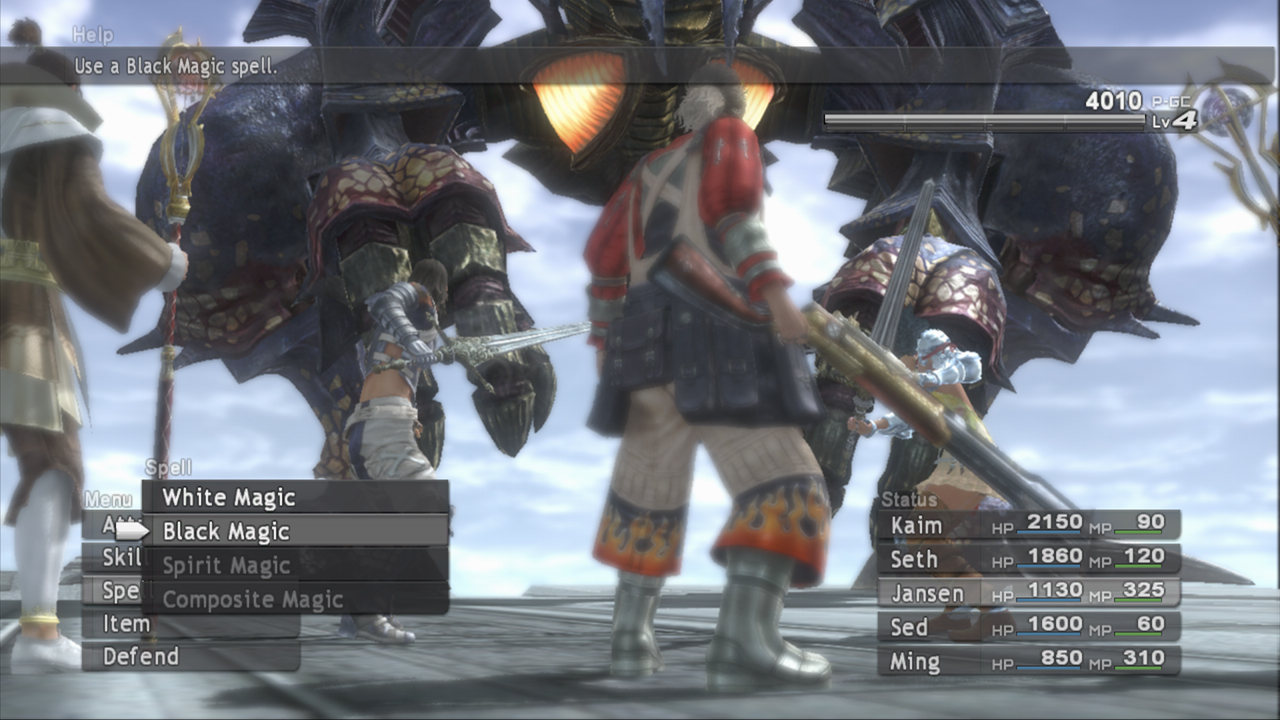The creator of Final Fantasy wants his mobile game to benefit from the same care and attention his past hits have.
Hironobu Sakaguchi is best known as the creator of the Square Enix Final Fantasy role-playing game series. He now heads up Tokyo, Japan based studio Mistwalker, with its latest mobile release, Terra Battle, now at over 1.7 million players worldwide, and rapidly growing.
Sakaguchi’s name will always be synonymous with Final Fantasy, a franchise he took from humble beginnings to one of gaming’s most popular, now clocking in at over 100 million copies sold worldwide. At Square, he went on to head up games such as Kingdom Hearts, Parasite Eve, Vagrant Story, and many more. He then left the company he helped build after 18 years to form his own, Mistwalker, where he continues to release celebrated video games.
We spoke with Sakaguchi during the 2015 Game Developers Conference in San Francisco last week, just a day before he received the Game Developers Choice Awards Lifetime Achievement Award for his contributions to the world of gaming.
Here’s an edited transcript of our translated interview.
GameaBeat: For me, the common theme across all of your work is the stories. I know that I’m getting a great story when I play one of your games. Do you see yourself as more of a storyteller than a game maker?
Hironobu Sakaguchi: The way that I see the story or the narrative being built for a game is that, in my world, the idea scenario is that it needs to happen at the same time. That means building the story but also thinking about the game system and what part of the [it] gets unraveled or unlocked as the story is being told.
So they have to work in parallel, but they also have to synchronize in a way that it creates those moments for the user to really get immersed in not just the storytelling part, but also the playing and experiencing part. I think in my case I wouldn’t be able to separate the two. If I had it my way I would say that I’m one that will tell the story but also is always thinking about the game system and how that is integrated with the storytelling.
Having said that, I do have to admit that if and when there’s a moment that a player such as yourself says something like ‘that was the scene or the moment where I broke down in tears, or that’s when it just hit me’ — that is probably my proudest moment, when I hear that or when I know that’s what the players were experiencing.
GamesBeat: So, that’s really what you’re out to do?
Sakaguchi: So just on that note alone it might sound like that storytelling is what I would like to do best. But if you think about the build up to that moment, again, there’s a lot of synchronization between telling the story and the player experiencing each and every component of the game system.
That still is very important, but the highlight I think for when I feel like I was successfully able to execute, and they got the feeling that I wanted to get across to them. Like when someone says ‘that was the moment that I was either in tears or I shed a tear’, or ‘without that moment this game would have not been what it is’. That’s the proudest moment for me.
GamesBeat: Is that why you’ve typically stuck to longer role-playing games throughout your career?
Sakaguchi: Yes, I think it’s probably the most fitting and appropriate genre, but it’s not like I set out to make an RPG and attach a story to it. I think the important thing is the player’s investment in playing the story and going on this adventure with the character. Naturally, it’s going to take a longer amount of time to invest yourself in a character and to go through the story and see the drama unfold.
If there’s anyone out there that can achieve that in less — say, a 30-minute, one-play game — then that’s fantastic, and they’re a genius. I need to learn how to do that, For me, I think it is that emotional investment that you put into a character, and where you those high notes, those high moments. The style of the game I’ve been creating and I want to make has been just that: telling the story and having that involvement. Naturally it has led me to build games that as an output as a role-playing game.
GamesBeat: These days, with how popular abbreviated experiences are on mobile devices, are you worried that this mindset doesn’t match? Or are you pushing against the current industry trend with what you’re doing at Mistwalker?
Sakaguchi: The short answer is yes.
With Terra Battle, just because it’s our latest and newest, we were a very worried and curious if these things kind of mattered to the end user. There’s a character profile that we drew up and you’re going to see it, but how many people have time to read it? Or for the story, how many people are going to read everything word for word? Or even the music — we put in so much effort into the audio, but how many people are going to appreciate it?
We went in with enough nerves and worries. How much of what we put in is truly going to be appreciated, and how much does it add to the entire game experience? I think it’s safe to say that, from the feedback and the communication we’ve got from the users, they do appreciate that and they like the background, and knowing the setting of each character. We’ve seen people comment on specific characters that they like and appreciate.
GamesBeat: I certainly appreciate it.
Sakaguchi: I think we made the right decision to keep it and leave it all in, but at the same time, I know there aren’t a lot of our type games out there. In the near future, even if you start seeing games that maybe follow our path or kind of mimic something from our game, I would just take that is a compliment and that there is enough appetite for games like Terra Battle out there. There should not be this notion going into a mobile game that there won’t [be a] story or character background.
If we’re able to maybe influence some developers out there to keep that spirit alive like we want to, I take that as a compliment. I would encourage people to also go in that direction.
GamesBeat: This could be a kind of secret weapon for Mistwalker. With so many copycats — if something does well, someone else makes their own version — your attention to values and putting forth a full package might slip under the radar, never copied.
Sakaguchi: To be completely honest, Terra Battle was a lot of trial and error on our part. At the very beginning what we had in mind was a much, much lighter game in terms of scope and depth. As we were prototyping and playing around amongst ourselves, it just wasn’t coming together — it wasn’t convincing enough for us. This wasn’t the ultimate experience that we wanted to deliver with this game. In order to make it a complete package in the way that we envisioned it, we slowly would start either adding and subtracting … and then it shaped into what we have today. The root of it all is that it had to feel good to us. It had to be meaningful and valuable and have that experience that we wanted to deliver. It was a lot of trial and error to come to this point.
GamesBeat: Is there a place for something like Mistwalker’s earlier works — like Lost Odyssey or Blue Dragon — on the mobile platform?
Sakaguchi: It may naturally have to come in a different shape or form due to just the sheer limitations or how much space and real estate you have on a mobile screen or tablet, and the controls are all on touchscreens, and there’s no real controller scheme behind it. Even with all of those factors, the experience that you have playing through a Blue Dragon game or a Lost Odyssey game, that’s something we do want to bring to the next challenge we take up.
And to Terra Battle, too. Speaking to what I said earlier, I still haven’t gotten any fans or users commenting that they’ve had that shedding tears moment. [Laughs]
I know that we’re not there yet, but I do want to make that come to reality even with Terra Battle. I think that’s going part of the core of what we continue to do. That’s not just with games that Mistwalker will put out. If you look at the Final Fantasy series, too, yes, we can talk about the mobile iterations of it, but if you look back to back in the days on the Famicom or the Super Famicom there were so many restrictions. We worked within limitations and restrictions, but it was almost like a blessing in desguise that we had to work within [them] to bring out the best of what we could in that framework. So the depth of the experience that everyone got out of that — it became something that was more than you probably had expected. So that’s the spirit that I would want to bring back to whatever Mistwalker game we bring out, even on a smartphone or a tablet.
GamesBeat: You’re best known for one particular franchise. Do you miss that? Do you see yourself getting back into that with what you’re doing at Mistwalker? Do you have bigger plans for Terra Battle?
Sakaguchi: The beauty with smartphones and apps is that you can, at your leisure, update, in this case, adding characters or adding dungeons. You can add co-op or maybe different modes. That’s already ongoing for Terra Battle. In terms of the narrative, the thirty chapters that are available is considered to be kind of ‘part one’ for us. We are already working on part two, which comes with several new chapters, and depending on how that goes we can shape the next big chunk into part three.
To me, it’s more like watching a TV series. It goes into production, it goes on air, and depending on the feedback you get, the next renewal of the next season starts. I’m looking at it in that manner for now. That may not lead into necessarily a franchise development, but Terra Battle on its own could become a very big content piece in that way. Our goal for now is to grow this into a much larger game. But not necessarily a franchise.
GamesBeat: When you first started at Square, did you ever see yourself winning a lifetime achievement award?
Sakaguchi: I’ll tell you that I didn’t even know about this award until a couple of weeks ago. [Laughter]
As a game creator, receiving an award, or having the team behind it receiving an award, was not probably something that I had as a dream or goal even way back when. The game being awarded is accepted and understandable because it’s for that thing — for a game award show. I don’t think we knew that the creators can also be awarded with something. It’s not a feeling that I either knew or wanted. It’s just a very interesting feeling to receive this award.
GamesBeat: As a celebrated game creator, do you have any dreams for where gaming will go?
Sakaguchi: I don’t want to distance myself for what’s going on in the outside world, or in our industry, or how the market has changed. There’s a level of relevance that I need to keep with what’s going on outside. So I don’t want to be that creator that says that I’m just going to keep chugging along on my dream and focus on that, and whatever happens, happens. I do want to keep in tune and in sync with what’s going on.
On that note, I feel like even with Tera Battle, what’s happening is that we’re providing the content, and of course, first and foremost we want users to enjoy the game, but on a different level there are players out there that are becoming a character or a persona on their own. This is where the modern day and age of the internet comes in. It’s almost like they are able to become their own persona and put a spotlight on themselves, and the fact that our content is enabling them to do that is what actually brings back some joy and satisfaction to us. So if we can affect, influence, and even motivate their lives, and if they can continue to enjoy themselves in that way, if it brings happiness to them, then that in and of itself is something I want to continue to do. It does matter that people enjoy my creations, but on top of that there’s a whole other layer of appreciation that the players themselves can get out of it by interacting with another outside layer that belongs to them. That’s something that I want to continue to do.
VentureBeat's mission is to be a digital town square for technical decision-makers to gain knowledge about transformative enterprise technology and transact. Learn More



